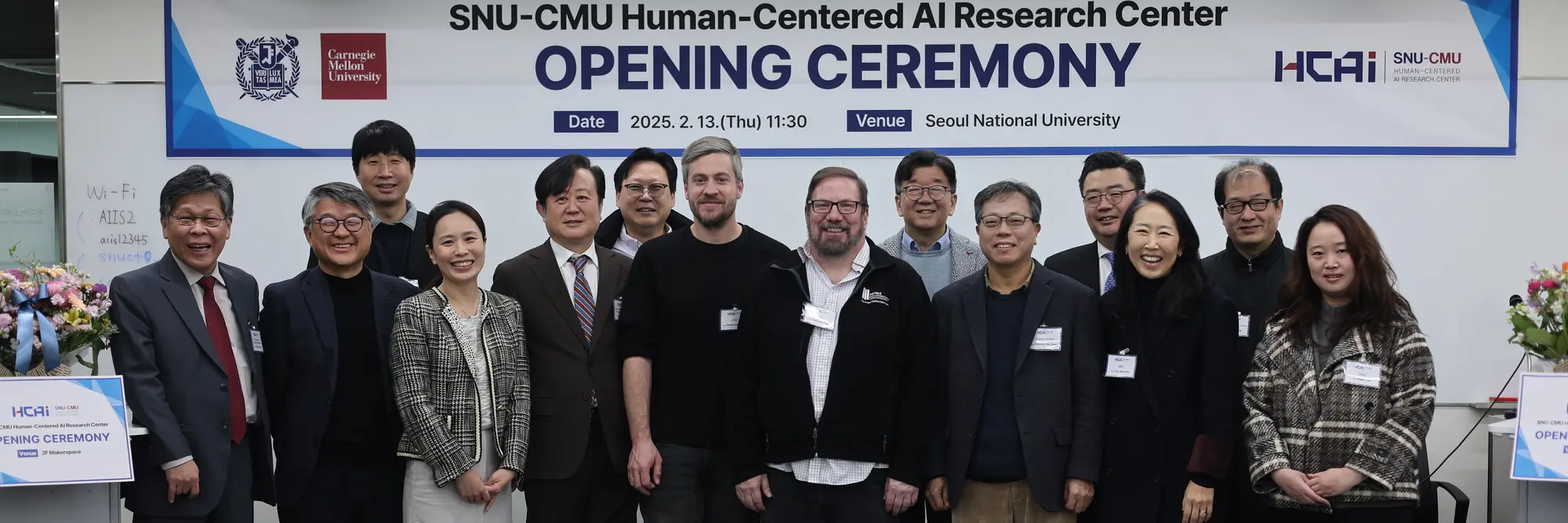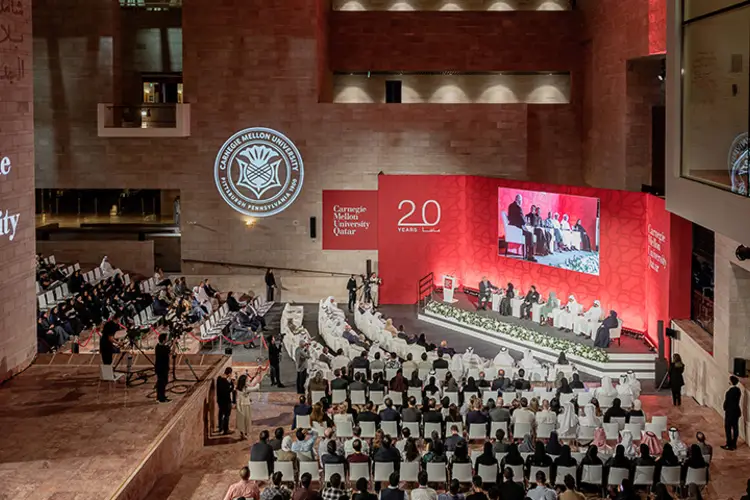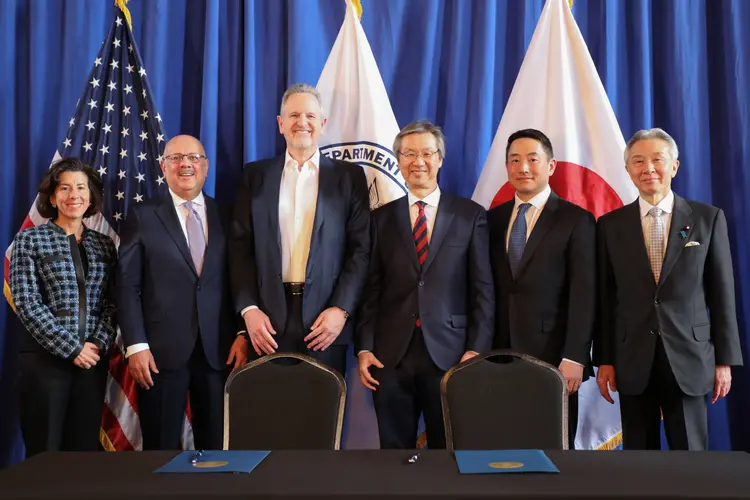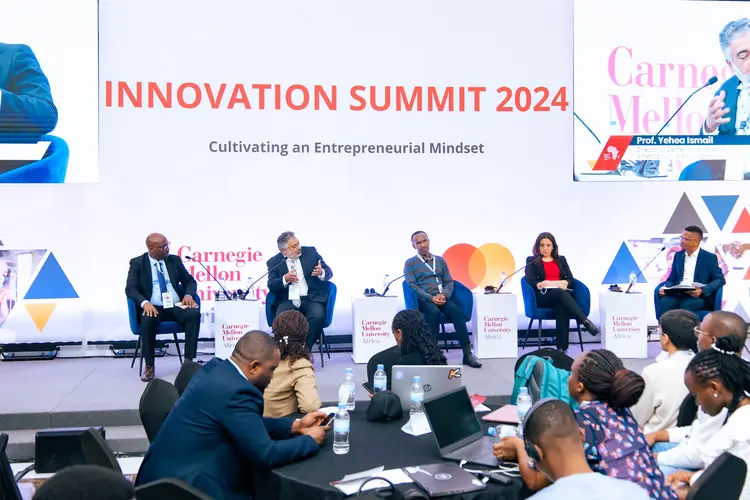
CMU Launches Human-Centered AI Research Center with Seoul National University
Media Inquiries
Carnegie Mellon University and Seoul National University(opens in new window) (SNU) have announced a new collaboration to advance human-centered artificial intelligence research that prioritizes human well-being, accessibility and social responsibility.
The SNU-CMU Human-Centered AI Research Center (HCAI) aims to pioneer innovative AI solutions by combining interdisciplinary expertise in human-centered design.
“We’re excited to officially launch this partnership with our colleagues at Seoul National University,” said Laura Dabbish(opens in new window), professor in the Human-Computer Interaction Institute(opens in new window) at Carnegie Mellon University’s School of Computer Science. “The groundwork for the center began two years ago with workshops that brought together students and faculty from both universities. We’re now building on that foundation to reimagine how AI can support human connection, empower individuals and enhance everyday life. Together, we’re creating a global model for AI innovation that’s rooted in human needs and values.”
So far, the researchers have hosted on-site workshops at both campuses, and met again while attending the same conference. HCII faculty David Lindlbauer(opens in new window) and John Stamper(opens in new window) participated in the HCAI Center’s official opening ceremony on Feb. 13, 2025, at the SNU campus in Seoul, South Korea. Attendees discussed the vision for the center, upcoming research initiatives and opportunities for joint projects.
"The Human-Centered AI Research Center brings together the best of Seoul National University and Carnegie Mellon University to advance AI that serves humanity,” said Gahgene Gweon, associate professor in the SNU Department of Intelligence and Information and HCII Ph.D. alumna. “By combining SNU’s leading role in AI innovation across Asia with CMU’s excellence in interdisciplinary and human-centered AI, we are pioneering research that makes AI more ethical, intuitive and impactful for society."
One of the center’s first research collaborations has already achieved major recognition at the Association of Computing Machinery (ACM) Conference on Human Factors in Computing Systems (CHI). The joint SNU-CMU paper, “Letters from Future Self: Augmenting the Letter-Exchange Exercise with LLM-based Agents to Enhance Young Adults’ Career Exploration,”(opens in new window) was accepted to CHI 2025 and honored with a Best Paper award. The project explored how large language models (LLMs) can support young adults in imagining their futures through guided career exploration activities, such as writing reflective letters to themselves or exchanging chats or letters with an LLM-based agent for advice. This work explores the capabilities of LLM-based conversational AI agents to simulate specific characters and provide tailored responses, while responding with personalized interventions in self-guided contexts.
“Researchers at CMU and SNU have a shared interest in how agentic AI offers a new type of social intelligence that might allow agents to operate in complex interpersonal relationships,” said John Zimmerman(opens in new window), Tang Family Professor of Artificial Intelligence and Human-Computer Interaction at CMU and co-author on the paper. “We want to explore how agents could and should operate between older parents and their adult children, between teens and parents, and between bosses and teams. When does the agent add value, and when has it crossed a social boundary?”
CMU and SNU have four joint research projects in the works for 2025. Each project brings together interdisciplinary teams of faculty and students from both institutions to advance ethical, people-centered AI. These projects explore key challenges in AI, including:
- How AI can support teamwork in programming with faculty leads Stamper and Carolyn Rosé(opens in new window) of CMU, and Gweon of SNU.
- Enhancing interactive problem-solving with Nikolas Martelaro(opens in new window) and Scott Hudson(opens in new window) of CMU and Joonhwan Lee of SNU.
- Detecting societal bias in vision-language models with Motahhare Eslami(opens in new window), Ken Holstein(opens in new window), Hong Shen(opens in new window), Adam Perer(opens in new window), Jason Hong(opens in new window) of CMU and Gunhee Kim and Eunkyu Park of SNU.
- Assisting older adults through socially intelligent agents with Zimmerman and Jodi Forlizzi(opens in new window) of CMU, and Hajin Lim and Eunmee Kim of SNU.
Additional HCAI activities slated for this year will include research workshops, student internships and faculty and student visits between the campuses.
More details about the center are available on its website(opens in new window).


